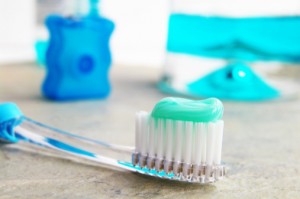 Plaque is a biofilm that forms on the surface of your teeth. It is usually a pale yellow color and can be easily removed with brushing and flossing. Even though plaque is initially simple to remove, the plaque that isn’t removed can adhere to the surface of your teeth for a long time. In about 48 hours, plaque hardens on your teeth, and in about 10 days, it calcifies into dental calculus (tartar).
Plaque is a biofilm that forms on the surface of your teeth. It is usually a pale yellow color and can be easily removed with brushing and flossing. Even though plaque is initially simple to remove, the plaque that isn’t removed can adhere to the surface of your teeth for a long time. In about 48 hours, plaque hardens on your teeth, and in about 10 days, it calcifies into dental calculus (tartar).
Plaque, Good and Bad
There is one benefit of dental plaque, believe it or not. Plaque helps build your immune system. But plaque is more well known for its ability to cause bad breath, gum disease, and systemic health problems. The problem is, plaque grows and grows and grows, and you have to remove it or it will get out of control. Daily brushing and flossing remove a lot of plaque, but not all of it. Calculus is insoluble, which means it won’t dissolve in water. At your six-month cleanings, our hygienist will remove calculus from your teeth; it generally builds up at the gum line and between teeth, where brushing may be ineffective.
Bad for the Mouth
Neglecting daily oral health habits and six-month dental cleanings allows plaque and calculus to wreak havoc in your mouth. Over time, plaque and calculus will irritate gums to the point that they become infected, and you develop gum disease. The bacterial infection will eat away the bond between your gums and teeth. It can even lead to necrosis, or death, of gum and bone tissue. Gum disease is the primary cause of adult tooth loss in the United States. When gum and bone tissue die, teeth have no support, so they loosen and fall out.
Bad for the Body
Gum disease, which often stems from plaque buildup, is associated with many overall health problems. It is an inflammatory condition that can contribute to diabetes and diabetes complications, low-weight births, heart attack, stroke, respiratory problems, and possibly some forms of cancer. Alzheimer’s disease and dementia are also linked to gum disease.
Prevention of Plaque Buildup
There are several ways to control dental plaque:
- Brush twice a day with a soft-bristled toothbrush and fluoride toothpaste
- Floss every day
- Visit Grinnell Street Dental every six months for a cleaning and checkup
If you believe you have more dental plaque than most people, talk with the dentist. Special rinses and toothpastes may help you control the situation. If you’ve noticed that your gums are tender, red, swollen, or if they bleed when you brush your teeth, you may have gum disease. Call Grinnell Street Dental in Sheridan, WY today to schedule a checkup and cleaning.







